[he/xe] Pozdravljam sve u studiju i režiji. gender: im a mechanic | sexuality: meh🤷♀️ science lover, maker/hacker, thinker, dreamer, disfluencer
Don't wanna be here? Send us removal request.
Text

George Carlin x iCarly :D
I was like Carlin.. sounds like Carly.. iCarly.. omg iCarlin!! xD I have to make this.
2 notes
·
View notes
Text

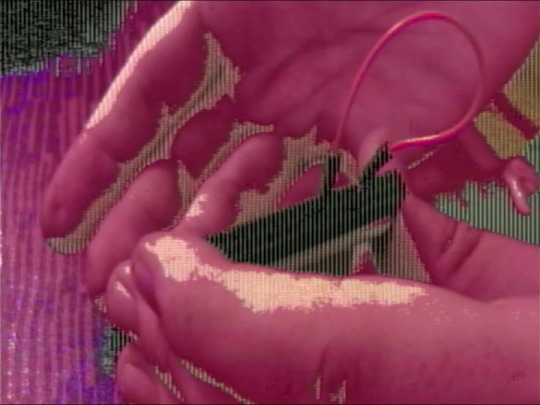
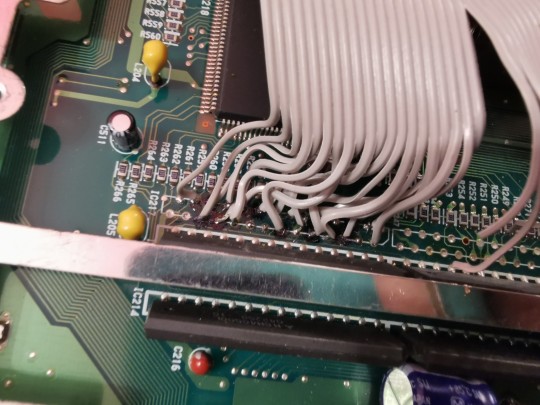
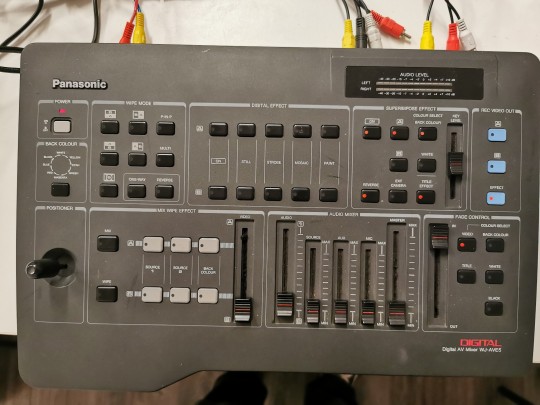
When I was a kid in the 1990s, I got fascinated by TV and as we had a camera at home, I started making my own TV shows and various experiments with in-camera VFX, but I craved a video mixer, to be able to do some keying and cool wipes and stuff. In 2023, an idea popped into my head to try to find one of these old video mixers. I looked on a local "Craigslist" type of website and there it was, Panasonic AVE5. I immediately ordered it. It was in perfect condition. Then I searched for some documentation and found out that it can be circuit bent to do all sorts of cool glitches. See my github page for more details!
2 notes
·
View notes
Text
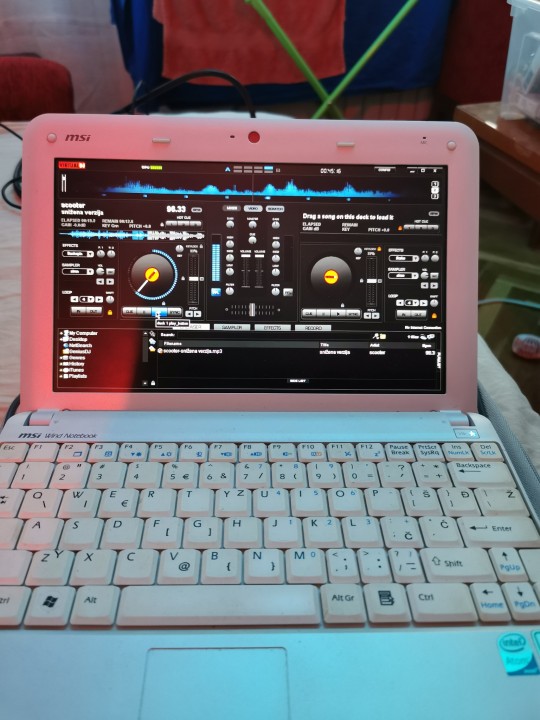
MSI Wind "netbook" from 2008, still works after 15 years, runs Virtual DJ with no issues with just 1 GB RAM and a 1.6 GHz CPU!
5 notes
·
View notes
Text

Lake jam in the sunset!
7 notes
·
View notes
Note
if it’s ok to ask a follow up question.. how can u differentiate between anp or ep or a mix of both and can a host be an ep?
Here's what Nijenhuis says from The Trinity of Trauma Volume III (p.17):
"‘Apparently normal parts’ (ANPs) primarily aim to achieve the goals of common life. ‘Fragile emotional parts’ (fragile EPs) primarily defend the basic integrity of life amid a devastating umwelt. ‘Controlling emotional parts’ (controlling EPs) primarily strive to generate and maintain a sense of personal power, of shining autonomy. To achieve their aims ANPs strive to ignore the phenomenal selves and worlds of the EPs. They strive to feel, know, and/or realize it as little as possible. In the attempt to delimit their fragility, ignoring (e.g., mentally avoiding) EPs is a form of control. Although fragile EPs feel and know themselves to be fragile, they long and strive to defend their very existence. Their defensive actions or passions involve a form of control. Stuck in the dreadful past, however, they remain more or less ignorant of the actual present in terms of the third-person’s conception of chronological time, place, and the unity the fragile EPs are a part of. Controlling EPs share this ignorance and try to ignore their fragility. They strive to control their life and their umwelt. Being prototypes, traumatized individuals can encompass both mixtures and variations of these three prototype."
To put this more simply, there can be any variation or mixture of the following:
ANP = Parts that aim to achieve the goals of daily life. They are usually avoidant or ignorant of the trauma and EP.
Fragile EP = Parts that are stuck in trauma-time. The past trauma still feels like the present for them, and they defend this perception and existence. The online community often calls them "trauma-holders."
Controlling EP = Parts that aim to aim to maintain their autonomy and power. They sometimes turn against other parts, or even people outside of the system. The online community often calls them "protectors" or "persecutors."
To help you tell the difference, ANP tend to have more higher processing while EP usually have more lower processing (see chart below):
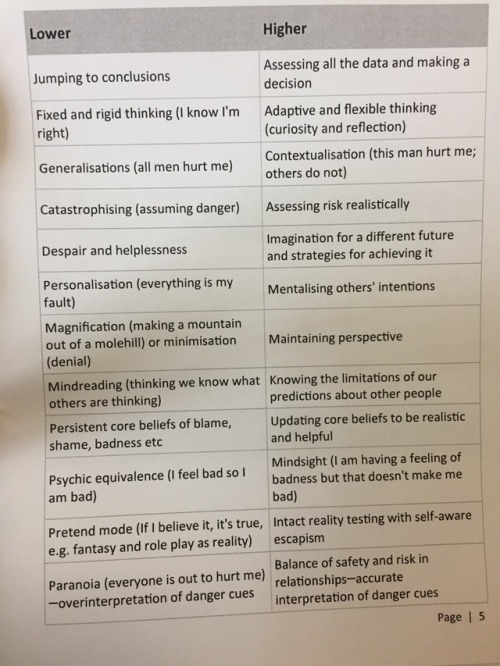
Also, yes an EP can be a host.
189 notes
·
View notes
Text
I, a hearing person who likes subtitles just as a preference, shouldn't have to read a subtitle that's obvious nonsense, go back a couple seconds, and listen again in order to figure out what's going on. An accessibility feature should not be the most half-assed part of a professionally made production. Scripted media has absolutely no excuse for not having subtitles or having subtitles that aren't perfectly verbatim. Professional captioning services should be ashamed of the shoddy work that they put out. Captions should be treated as a part of the production, just like filming, editing, audio balancing, etc - and anything that releases with missing or bad captions should be seen as unfinished
91K notes
·
View notes
Text
Online dating when you're nonbinary 😭
Please show me to other nonbinary people.
#nonbinary#non binary#gender nonconforming#gender is a social construct#genderqueer#gender fluid#gender#queer#gay#trans
1 note
·
View note
Text

I had some fun in Canva 😁 I hope you understand that it's sarcasm.
Read more about this issue:
#gender#gender nonconforming#gender norms#non binary#nonbinary#queer#feminism#women#transmasc#trans men#trans
3 notes
·
View notes
Text

Jarun lake, Zagreb, Croatia 1.8.2023.
0 notes
Text



DIY laser projector
Paula and I built a laser projector out of old hard drives, some 3D printed parts, small mirrors and a laser we got from Aliexpress 😁
5 notes
·
View notes
Text
Should I name my alters?
Or: How much separation is too much separation?
The ISST-D treatment guidelines state: “It is countertherapeutic to suggest that the patient create additional alternate identities, to name identities when they have no names (although the patient may choose names if he or she wishes), or to suggest that identities function in a more elaborated and autonomous way than they already are functioning.” - Source: www.isst-d.org
So what does this mean? Why does this matter?
“Countertherapeutic” means “Working against a therapy”. It refers to something that goes directly against the way therapy should be approached, enacted, or provided.
Doing something countertherapeutic will make your healing journey harder, and in some cases can cause you even more harm.
Does this mean that you should never give your alters names?
No. The guidelines clearly state that it is ok to name alters, but that you should not name alters who do not have names.
A personal take on this, by a reddit user, is: “You’re supposed to discover and accept differences, not push alters to be more separate than they already are.”
Basically, if an alter has a name, or chooses a name, and wishes to be referred to by that name, then you should accept that. If an alter changes their name, you should also respect that - especially as a lot of alters choose or have names which are descriptive of their roles, purpose, or values. And as these roles or purposes might change, the alter in question may wish to change names with it.
Interestingly, “Got parts? : an insider’s guide to managing life successfully with dissociative identity disorder / by A.T.W.” actually suggests that people with DID/OSDD MUST pick names for parts/alters who do not have names. This is found in the section titled “Getting to know you”.
In this case, I believe that the purpose of naming alters who do not have names, is to identify them and link that alter’s personality, triggers, traits, etc together more easily. It is my interpretation that you do not need to pick a name, but that you do need to pick an identifier for each alter in order to complete the task laid out in that section of the writing.
Identifiers.
An identifier is a word, name, or term, which helps distinguish one person or alter from another.
For instance, at school you and your friends might refer to a fellow schoolmate as “the red haired girl”.
In a system, you might refer to a little alter as “the happy one”, or perhaps “the 6 year old”.
Identifiers like this can help make sure that everyone in the conversation knows who you are talking about. This can be particularly helpful in therapy for DID/OSDD, as it will make it easier to track an alter’s thoughts and personality, as well as helping the therapist identify which alter is having a particular problem, reaction, or any negative learned behaviours that they may need help with.
Systems will often use labels as identifiers - eg “host”, “little”, “protector”. I even know a system who refers to alters by numbers in a chronological order (that is, the first alter to become known is alter 1, the next is alter 2, and so on). This particular method is unusual, because most people would interpret this as a hierarchy, or a way of saying that some alters are more important than others.
The type of identifiers you use is up to you and your system. Make sure to remember that identifiers can change at any time - “the angry alter” may become less angry, and then a new identifier may be needed. If you do not allow identifiers to change, you may accidentally be forcing other alters to feel as though they have to act in a certain way - eg “the persecutor” may have started healing and growing, but if you insist on still calling them “the persecutor”, they may be angry or feel helpless to control their actions.
When is a name or identifier bad? - See this separate post.
What is the problem with increasing separation between parts?
It is my interpretation that pushing alters to be more separate than they actually are, will likely increase or strengthen dissociative barriers between alters, which is contrary to the goal/s of treatment (whether you want fusion or healthy multiplicity). And can make communication and cooperation even harder.
However, the ISST-D guidelines (and the personal experiences of many systems) shows that some separation, or acknowledgement of separation, is good and healthy.
Why is this? Isn’t this a contradiction?
No. To summarise, you should not force names/traits onto an alter. But you should also not refuse to acknowledge that they have a name/trait.
If you break an alter’s trust by forcing something on them, or by refusing to allow them to be themselves, your healing journey will become more difficult. All of your alters (including whichever alter is reading this) are equal. You are all part of the same person. So you should accept your differences AND similarities.
“ Taken together, all of the alternate identities make up the identity or personality of the human being with DID.” - Source: www.isst-d.org
In conclusion:
- Do not forcibly pick a name, appearance, trait, etc, for any alter.
- Do not insist that any alter must keep a previously chosen name, previously displayed trait, or insist that their appearance or age cannot change.
- Do not refuse to allow an alter to choose (or self-report) their name, appearance, traits, etc.
- Be respectful of an alter’s choices.
- Be open to helping an alter if their choice of name indicates a deeper issue, but do not push them about it.
And
- Be careful. If you decide to assign an identifier, appearance, or other indicator, to an alter: Be mindful, and watch out for signs of increased barriers, dissociation, or otherwise negative results. If you see that starting to happen, I’d suggest slowing down and reviewing what could be causing it. Talk to your therapist about it if possible.
238 notes
·
View notes
Text

Beautiful view at the full moon over Remiza, Zagreb. (Because of the large dynamic range, the photo was composited of two photos at different exposures)
1 note
·
View note
Text
Remiza Fast Food. Double cheeseburger 4,70€ 😁

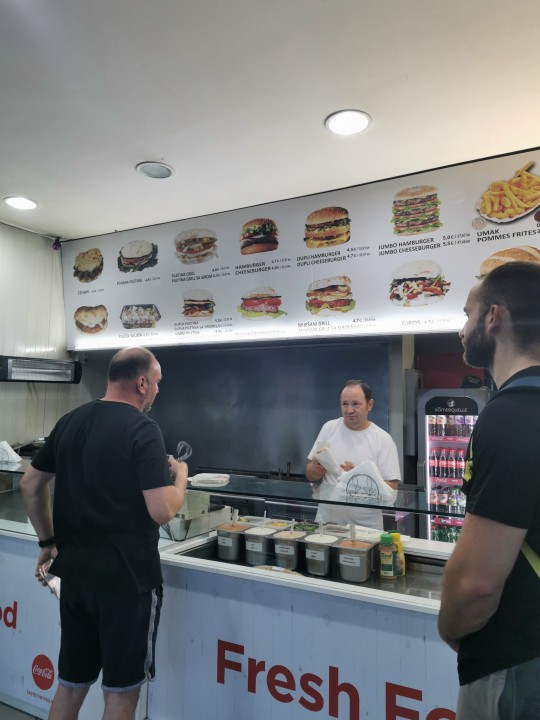
1 note
·
View note
Text
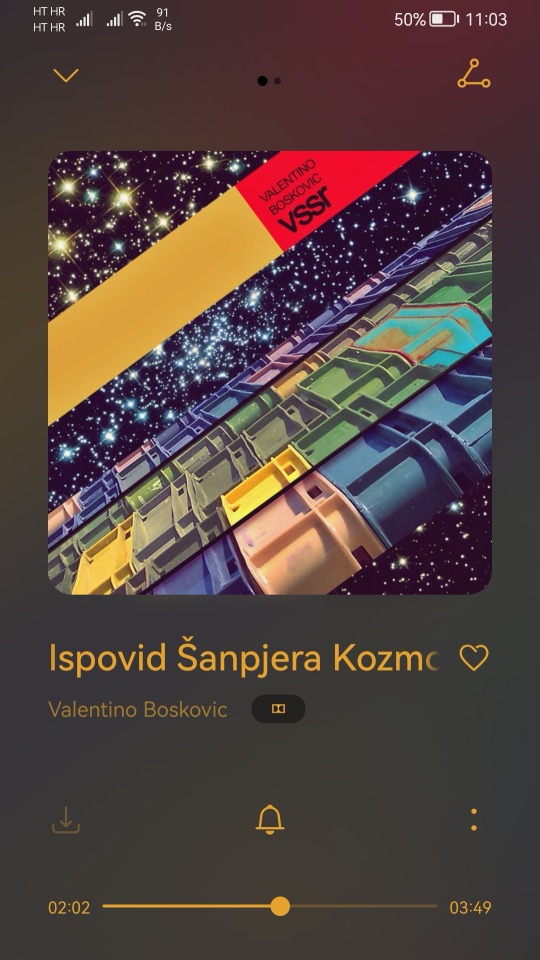
Nedijon ne smiš
ništa činit
0 notes
Text




Reverse engineering a display which is no longer available as a spare part. 👾
#reverse engineering#electronics#diy#makerspace#zagreb#zagreb makerspace#radiona#radiona.org#14-segment display
1 note
·
View note










